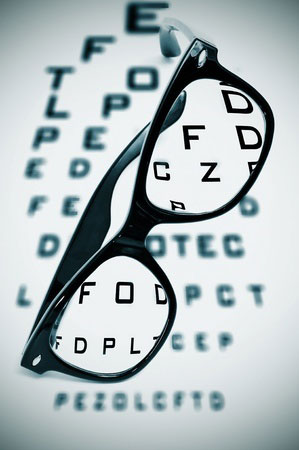 Any month is a good month to have your eyes checked as monitoring eye health is an important component of comprehensive senior healthcare. If you've been putting off that appointment, October is an especially appropriate time to schedule an eye examination.
Any month is a good month to have your eyes checked as monitoring eye health is an important component of comprehensive senior healthcare. If you've been putting off that appointment, October is an especially appropriate time to schedule an eye examination.
The second Thursday of the month, Oct. 9, 2014, is World Sight Day, with the call to action for 2014 of "No More Avoidable Blindness."
Aging and Low Vision Problems
Occasionally, "snowbirds" or Cincinnati residents who have spent an extended period of time in sunny areas without proper dark lenses will experience vision problems when they return to their homes up north. Many attribute these vision problems to the eye readjusting to less intense sunlight, but sun damage can be permanent—especially for seniors.
The facts point to a disproportionate number of problems for the aging eye:
- Eye impairments like glaucoma and cataracts progress with age.
- As with other injury—such as surgical scars or broken bones— it takes longer for an older body to heal damage to the eye.
- More than 65% of visually impaired people worldwide are aged 50 and older, a segment that represents only 20% of the total population.
Even though great strides have been made in recent decades in preventing disease-related eye problems, the startling fact remains that 80% of visual impairment is avoidable. That means that the vast majority of low vision and blindness cases are treatable or preventable with proper care.
Awareness Is Key
Most seniors know that a family history of eye problems increases their risk; diabetes is also widely acknowledged as a cause for concern. Some conditions may appear slowly, diminishing sight in one or both eyes, and causing depth perception and peripheral vision problems. Sometimes, dry eye can be severe in older people. Certain medications, notably extended use of drugs to treat RA, some allergies and cancer, require regular monitoring to detect possible changes in eyesight.
Cataracts and glaucoma are also well known problems. Other conditions, however, may not exhibit any early symptoms; or they may be unnecessarily feared.
Today, however, even detached retinas and macular degeneration can be treated effectively with early detection. But, it requires examination by a specialist.
Regular Examinations Are Vital
Seniors who still drive, or who wear corrective lenses, may be more prone than others to schedule yearly exams. But, a routine exam should be a normal part of any senior healthcare plan, as important as periodic bloodwork or electrocardiograms.
One of the best methods to reduce the incidence of visual impairment is through regular checkups. Trained professionals and modern equipment can detect possible problems long before individuals experience symptoms in most cases.
Ophthalmologists, optometrists and opticians are all dedicated to improving visual awareness, and modern advances in lasers and "space age" technology can correct conditions that were considerably more worrisome as little as a few years ago.
Most senior healthcare providers today recognize the importance of proper vision care—even Medicare covers certain preventative and diagnostic exams. By and large, American seniors are lucky and well cared for.
But, not all eye care is affordable or readily available, particularly in underdeveloped nations, for the very young, the poor and the underprivileged. That is where an organization like IAPB frequently partners with other agencies and governments to encourage examinations, expand treatment, and fund programs that provide care.
An International Effort
The International Association for the Prevention of Blindness (IAPB) was founded in 1975, and has grown into a leading advocacy group with a myriad of international initiatives to promote eye health as well as to increase opportunities and quality of life for those who suffer from eye problems.
The annual World Sight Day represents just one of the programs to raise international awareness and to focus attention on solutions. IAPB's target is to reduce the prevalence of avoidable visual impairment by 2019 by a measure of 25% over the 2010 baseline.
So, as you go in for your eye exam this October, think about how you and your community can help raise eye health awareness.












